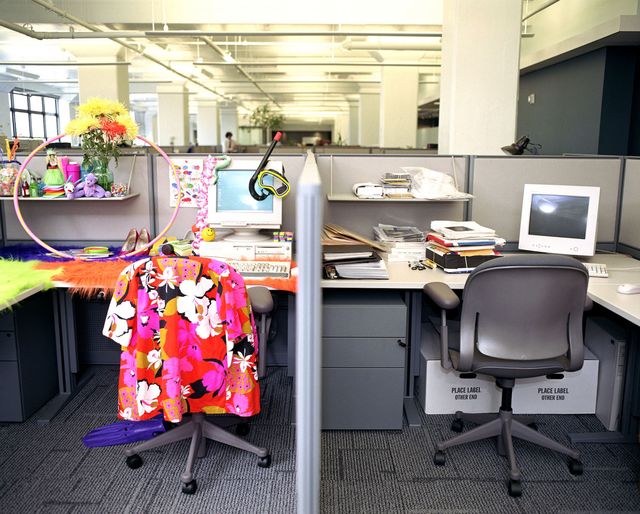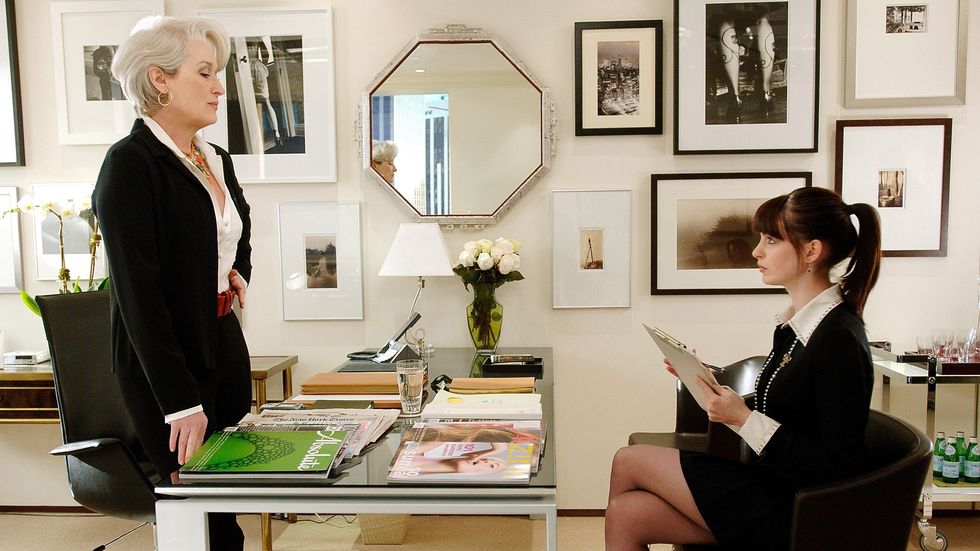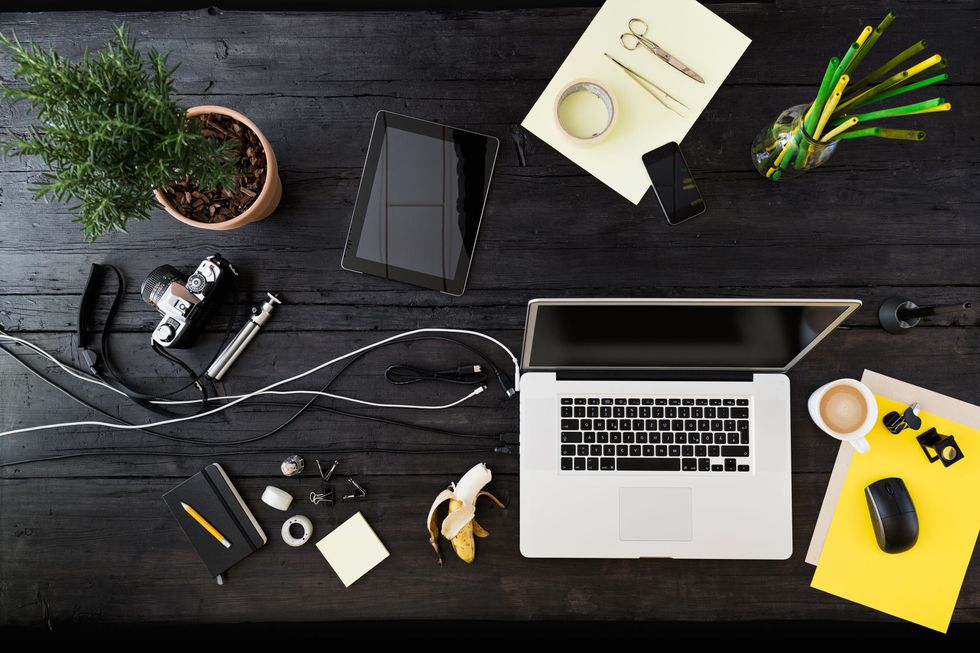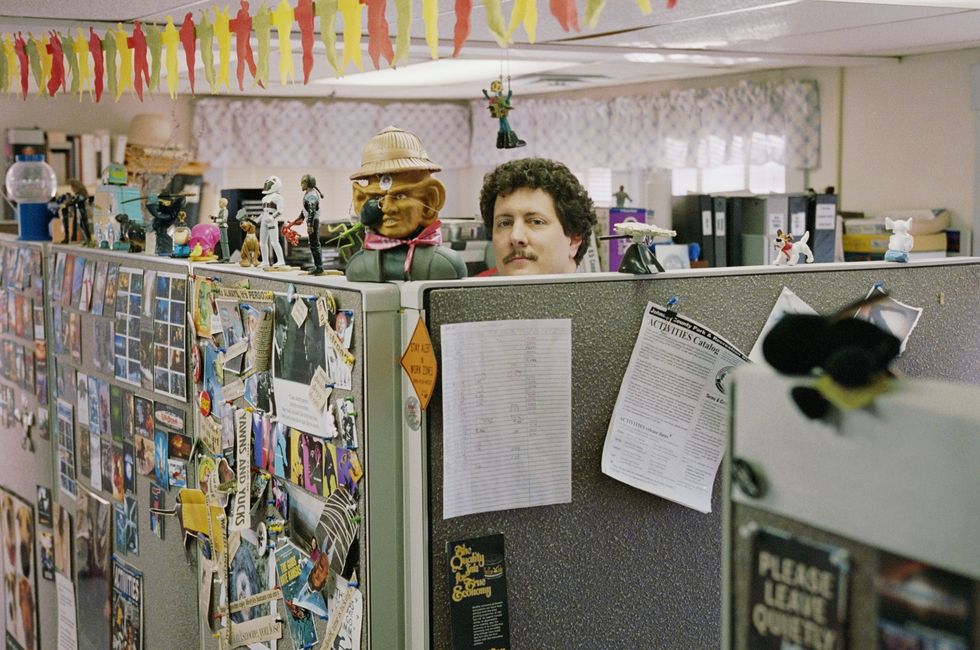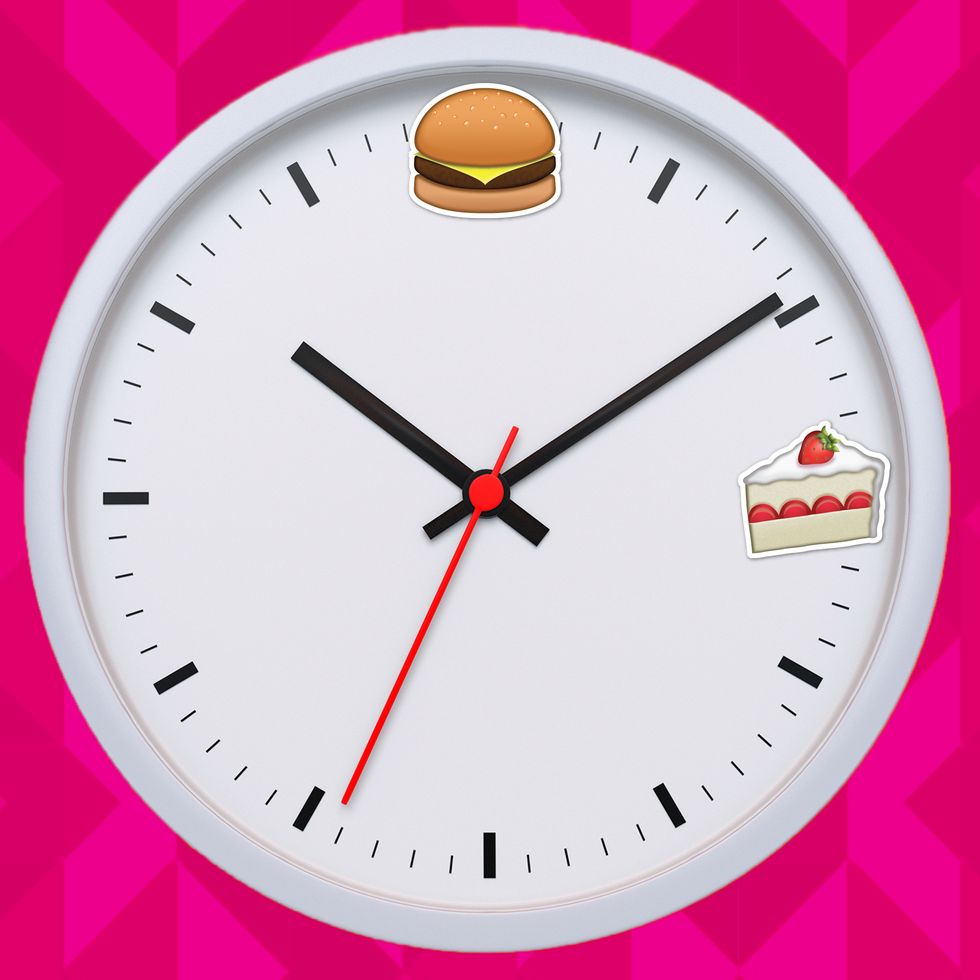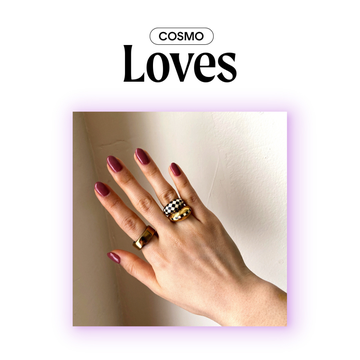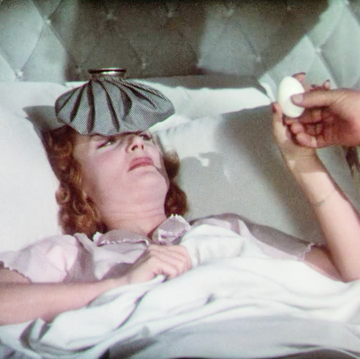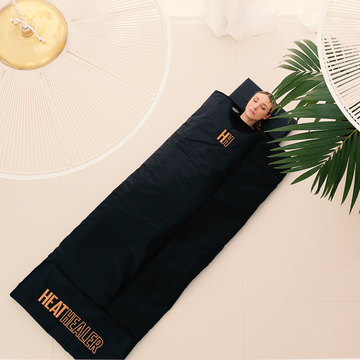There's not a human on the planet who's immune to stress. It's a natural reaction designed to help you face dangerous, threatening situations by stepping up to the plate — or running like hell.
In the short term, this is highly effective: Your body releases a bunch of hormones; boosts your blood pressure and heart rate to send blood to the head, heart, and muscles; and suppresses nonessential bodily functions (like digestion, immune function, and motivation) so you can Get Shit Done.
The problem is that the body isn't equipped to handle chronic stress, a fixture of today's typical work environment. And as smart as humans are, we're not evolved enough to differentiate between physical, life-threatening challenges and emotional ones. So the body responds to a stupid work deadline as though a tiger's got you cornered — and you end up with symptoms like headaches, muscle tension, an upset stomach, change in appetite, difficultly concentrating, insomnia, irritability, and premature aging.
"You name an undesirable outcome, and that happens when you're chronically stressed," says Amit Sood, M.D., a professor and stress expert at Mayo Clinic Healthy Living Program in Rochester, Minnesota.
To save yourself from the kind of stress that makes you sick and generally miserable, avoid these common triggers when you can.
1. You doubt yourself. "People experience stress at work when there's a mismatch between demands and resources to deal with demands," says David Ballard, Ph.D., psychologist and assistant executive director for organizational excellence at the American Psychological Organization. Lots of people muster up this mismatch in their own heads: "They think they're not equipped to deal with expectations what's thrown at them — that they're not doing a good job, and that it's going to catch up with them," Dr. Ballard explains. "It's this fear of not meeting expectations and being called out for it." Instead of falling to prey to yourself, remember what got you your job in the first place: you and your skill set. Instead of being self-defeatist, assume you're doing your job well even if you don't get regular pats on the back.
2. You report to a micromanager. Micromanagers are just like evolutionary predators because they put you on heightened alert — and the same goes for anyone who works for a bully or a narcissist. "You're like a deer walking through the forest, worrying you're going to be pounced on," Dr. Sood says. To better deal with a manager like this, take the lead on communicating the status of your projects at regular intervals — you might actually increase your productivity.
3. You think your work is meaningless. When you don't believe in your work or can't see how your daily tasks contribute to your company's greater goals, you can't possibly derive joy from it. Your brain's reward center counters its stress center, Dr. Sood explains. The less joy you get from your job, the more susceptible you are to stress — particularly because lack of motivation causes you to run out of steam more quickly. The fix (besides finding a gig that feels more productive) is figure out who directly benefits from your work — and try to feel good about helping that person.
4. You can't remember your last win. Strike out again and again with ideas that don't sell or a boss who's impossible to please, and you could lose your motivation, impair your creativity, and open the door for stress to flow freely — even at a job you're otherwise obsessed with. You don't need a four-figure raise to feel like a success, but something as simple as getting credit for your great idea can activate your brain's reward center and compensate for stress, according to Dr. Sood.
5. You don't get enough sleep. You'll set yourself up for chronic fatigue at work, where tiredness and stress feed into each other, according to Dr. Sood. That's because the brain makes errors and becomes less efficient when it's tired. Enter the Big, Bad Boss, and you can see how insufficient sleep can leave you particularly vulnerable to even more symptoms of stress.
6. There's nothing green at your desk. Markers of life, like plants, pets, and open spaces, tell your brain there are no predators around you, so they're innately less intimidating and more relaxing, Dr. Sood explains. "We evolved in nature, and it makes us feel safe so we can let our guards down," he adds. The less your desk looks like the wilderness, the more stress you're likely to feel. Particularly in the absence of natural light, a little greenery can go a long way.
7. You've gone more than two hours without a break. That's about as long as your brain can sail at full mast, according to Dr. Sood. (You may have longer if you're super motivated by your purpose.) But your brain doesn't have pain receptors, so it doesn't automatically hit the brakes when it's tapped out, Dr. Sood explains. Instead, you start feeling sleepy — the least of your worries once the stress flood gates open.
8. You're lonely AF. Competition breeds loneliness — it's why so many workplaces are full of both. The thing is, loners are constantly on high alert because, evolutionary science suggests, they're more susceptible to predators when there's no one to watch their back. It's why just feeling lonely can bring on markers of stress, like an adrenaline surge, high blood pressure, and sweating, according to Dr. Sood.
9. You're always late to work on literally everything. When you're constantly pressed for time because you get in late or manage your time poorly, you have to speed up to compensate — probably beyond your ability. And lacking resources triggers all sorts of stress, Dr. Sood explains.
10. Your desk is a one-way ticket to Tchotchkes Central. Some people need an environment that's soothing with photos, art, and objects that trigger all the feelings. But personal stuff — and any clutter, really — can interfere with you finding the things you need, like a pen, pair of scissors, or notes from last week's meeting, ultimately interfering with your productivity and causing stress.
11. You have zero privacy. Generally, people find open office spaces more relaxing (read: less stressful) than layouts that promote closed doors. (It sends a memo to the brain that says you're safe from hidden predators.) But a job that involves calling clients without a quiet space to do so can be inherently stressful.
12. You deleted all your junk email first thing this morning. Regardless of whether you're a morning or evening person, your brain has more energy to tackle important tasks during the first few hours of work, before it gets fatigued. Waste your prime time on menial tasks that require no effort, and you'll end up with important stuff when you're down and out. Align what you're doing with times you're most likely to do it best, and you'll cruise through the day with minimal stress.
13. You open emails as they arrive. Yeah, some people have jobs where they need to field constant emails, ASAP. But in most cases, reacting to anything that drops into your lap, regardless of its importance, interferes with the work you should be doing (i.e., time-sensitive tasks and projects that your boss sees as top priority).
14. You work through hunger. "When you're hungry, your brain doesn't get enough glucose to think and process information, so you develop fatigue, headache, and stress," he explains. "Life runs on willpower and hunger depletes it," he adds.
15. You don't have a glass of water on your desk at all times. "Dehydration decreases your cardiac output, which means less blood goes to the brain, and it gets tired and stressed more easily," Dr. Sood explains. (And you thought you had to wait for happy hour to drink away the stress!)
16. You do 500 things all at once. Multitasking sounds better than it is. It might look like you're keeping up with your group texts and eating lunch and responding to your boss's urgent email. But the brain can only process one conscious experience at any given time — so you end up doing nothing effectively and feel dissatisfied, fatigued, and extra bitter about your work. "You can only experience joy in an experience when you're giving it your complete, undivided attention," Dr. Sood says. And happy thoughts are your best defense against stress.
Follow Elizabeth on Twitter and Instagram.

Elizabeth Narins is a Brooklyn, NY-based writer and a former senior editor at Cosmopolitan.com, where she wrote about fitness, health, and more. Follow her at @ejnarins.
